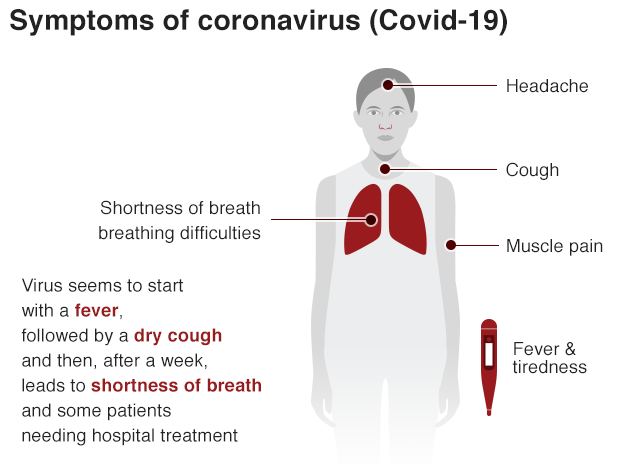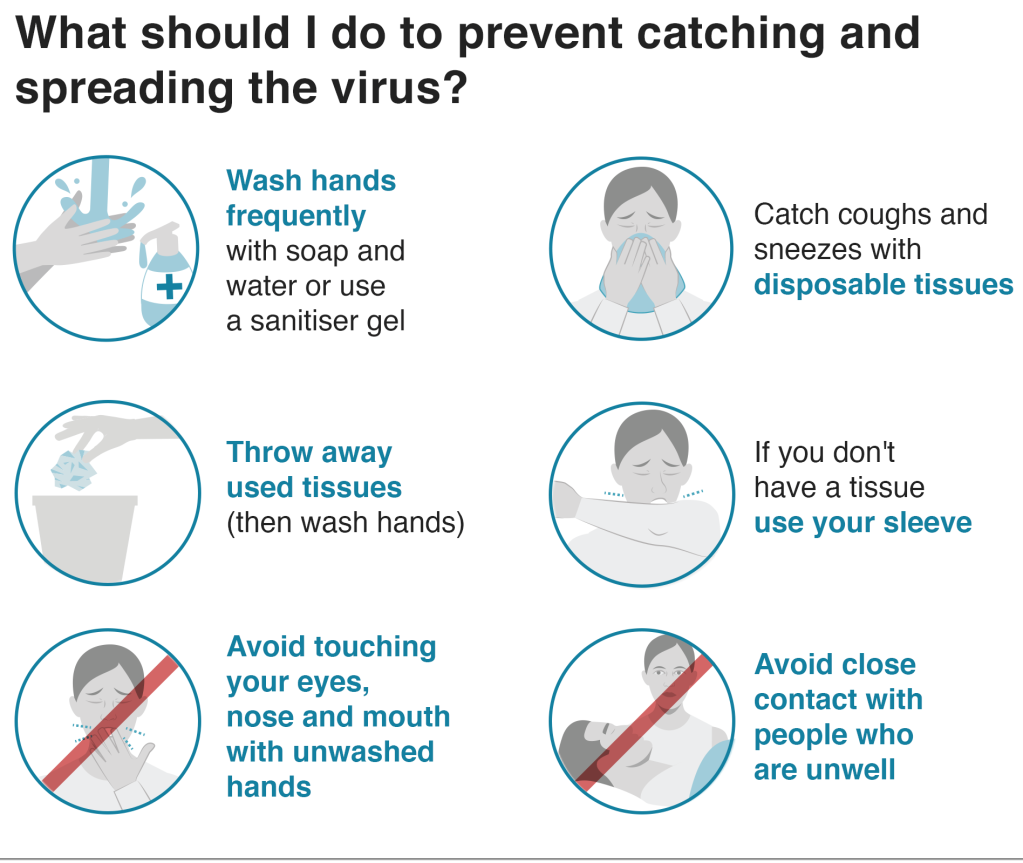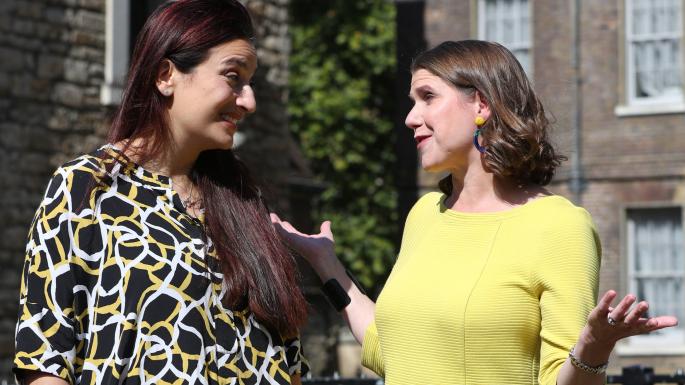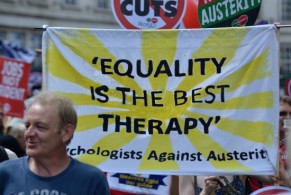
Pictured: Gail Ward, who was told that she did not qualify for Personal Independence Payment, despite living with a rare and potentially life-threatening heart condition – Prinzmetal’s angina – attacks can occur even when she is resting. She also had other health problems. Remarkably, Gail was told by the DWP that she doesn’t qualify for PIP. She won her appeal after waiting 15 months for her case to be heard at a social security tribunal.
It has been claimed that officials within the Department for Work and Pensions (DWP) have edited or removed thousands of work capability assessment reports submitted by privately contracted healthcare professionals.
It’s alleged that officials reduced qualifying points awarded during face-to-face assessments, delivered by ‘independent’ private firms, and in some cases disposed of the reports entirely.
The Daily Record reports that during the last year paperwork was altered or amended in around 1,840 cases, while a further 460 applications were branded ‘unacceptable’ and simply binned.
In 2018, I raised concerns that the DWP were quietly editing people’s assessment reports for Personal Independence Payment (PIP) and Employment and Support Allowance (ESA), to reduce or end claims for disability support. I reported that a man with multiple sclerosis and mental ill health lost his PIP award after his original assessment report was dishonestly edited during a DWP ‘audit.’
Officials had clearly tampered with the assessor’s original report. The man only discovered the ‘audited’ version of his health assessment report when he asked for copies to make an appeal. He had been in receipt of the basic level of support for two years when he was summoned to be re-assessed for PIP, which is non-means tested and designed to help with the extra cost of living with debilitating conditions.
The original assessment document said the man, has “regular specialist input”. The ‘audited’ version says he does not. The report outlines the patient’s MS, depression and anxiety and tells of his difficulties with tasks including cooking, dressing and washing. The nurse noted his clothes were dirty and his top inside-out. The ‘auditor’ had removed the second point.
The ‘auditor’ changed a part which said the man needed supervision or prompting to wash or bathe, and a section on preparing food. The original said he “needs prompting” but the ‘audited’ version said he could prepare and cook a simple meal himself. In every section of the report where the man scored points towards his PIP award, the ‘auditor’ had reduced his score to zero, without contacting him to ask for information. This tampering with the original report was done without informing the claimant, and therefore without giving him an opportunity to clarify the original report or challenge the altered version of his account.
He was accidentally sent ‘before and after’ audit copies of his assessment, highlighting the DWP editing designed to trivialise the impact of his medical conditions on his day to day living circumstances, and to remove points for his award eligibility.
The Daily Record reports than an estimated 11,760 assessment reports were secretly graded by DWP officials as acceptable, unacceptable, or amended.
DWP officials graded around 980 health assessments per month, with up to 200 of these being amended every month, while 20 to 50 were deemed “unacceptable” and rejected outright.
However, the number of amended reports is likely to be much higher because the DWP only publishes data from Independent Assessment Service forms (formerly known as Atos).
The Daily Record also says that 33,670 assessments in total were audited from two private companies contracted by the DWP to carry of disability assessments for PIP.
SNP MP Marion Fellows commented: “It is concerning that thousands of health reports are being tampered with each year by people who weren’t even present for the assessment.
“There must be a complete halt to audits and an inquiry into the UK Government’s rigged health assessments.
“DWP auditors, who aren’t present during assessments, should not be able to mandate changes which could bear heavily on peoples’ lives.
“Changes should not be made by so-called health professionals who didn’t even carry out the original assessment. This is a clear injustice that must be corrected.
“People have spoken to me about how they feel they are degraded in their assessments.
“For the whole process to be a sham and for the assessment to be undermined by auditors is infuriating.”
The DWP said: “We are absolutely committed to ensuring people receive the support they are entitled to.
“That is why assessments are carried out by qualified health professionals and we continue to work with them to ensure quality is continuously improving.
“Sometimes assessment reports are returned to providers to ensure we have as much information as possible to reach an accurate decision.”
That’s clearly untrue. Information is most often actually removed at ‘audit’ by the DWP. And inaccurate decisions are unacceptably high. The high success rate of claimant appeals indicates that clearly, something is seriously wrong with the system.
Last year, around two thirds of cases heard at tribunal in Great Britain found in favour of the claimant. In Northern Ireland, the figure was around 54% in 2018-19. The rise in the percentage of successful appeals came despite a drop in the overall number of cases being heard at court.
This raises concerns about the overall quality of decision-making in the DWP – both on PIP and ESA, in the apparent push to remove support unlawfully from as many disabled people as possible in the name of austerity.
The hostile environment
The introduction of mandatory reconsiderations in 2013 and cuts to legal aid have deterred many people from appealing. Mandatory Reconsideration don’t seem to function as a genuine check to ensure the original decision is fair and accurate, instead it is an administrative hurdle for claimants to clear, leaving them without any support while the DWP review the original decision. Furthermore, there were targets in place for DWP decision-makers to uphold around 80% of the original DWP decisions.
The DWP have claimed that the largest single reason for the high success rate of those claimants appealing DWP disability benefit adverse decisions. However, the Department has failed to explain why it takes until the appeal stage for evidence to come to light. In almost half of cases the “new evidence” presented was oral (not medical) evidence from claimants, which arose most often during the appeal process. It is difficult to understand why this information was not, or could not have been elicited and reported by the assessor.
The DWP’s attempt at explanation does not absolve the Department of responsibility. It certainly fails to address or explain how a target for upholding original decisions is compatible with ensuring that questionable reports are thoroughly investigated, and clearly flawed, inaccurate decisions identified and corrected.
Government guidelines for assessments are aimed at invalidating disabled peoples’ accounts of their experiences of illness and disability
The government produced guidelines that says assessors must look for ‘inconsistencies’ in disabled people’s accounts. Assessors are told: “All evidence must be interpreted and evaluated using medical reasoning, considering the circumstances of the case and the expected impact on the claimant’s daily living and/or mobility. When weighing up the evidence, it is important to highlight any contradictions and any evidence that does not sufficiently reflect the claimant’s health condition or impairment or the effect on their daily life.”.
This means that rather than focusing on written medical evidence and verbal evidence provided by the claimant, the assessor is looking for any evidence that may be used to discredit the claimant’s account of their disability from the start.
Disabled peoples’ benefits assessments are carried out on behalf of the Department for Work and Pensions by the private contractors Capita, the Independent Assessment Services (formerly called Atos) and Maximus. However, it is the DWP that makes the decisions regarding a person’s eligibility for social security support.
The government guidance document for PIP assessments (section 3.4 onwards) says that “audit processes are in place for auditing the quality of assessments through:
• DWP Lot-wide audit (random sample); and
• The provider – Approval-related audit (for trainees).
And: “Audit has a central role in ensuring that decisions on benefit entitlement, taken by DWP, are correct. It supports this by confirming that independent Health Professional advice complies with the required standards and that it is clear and medically reasonable. It also provides assurance that any approach to assessment and opinion given is consistent so that, irrespective of where or by whom the assessment is carried out, claimants with conditions that have the same functional effect will ultimately receive the same benefit outcome.”
It goes on to say: “The DWP Independent Audit Team carries out lot-wide audit, which is an audit of a controlled random sample from across each contract Lot, feeding in to routine performance reporting for DWP.”
Where a report is deemed ‘unacceptable’: “Any changes made to forms should be justified, signed and dated. It should be made clear that any changes are made as a result of audit activity. Where necessary a new report form should be completed.”
The government guidelines also say that: “Any challenge to the reason DWP has returned a case to the Provider for rework must be made via the nominated rework Single Point of Contact (SPOC).”
In the event of a dispute regarding a request for an assessment report to be changed, “the final decision on whether the case requires rework rests with DWP and not the assessor.”
So ultimately, an official at the DWP who was not present when a person was assessed, may decide that the assessment report is ‘reworked’, and use non-transparent criteria to change the facts established and recorded during the assessment.
This means that the person making the claim has no opportunity to challenge the changes made to ‘reworked’ reports before the decision is made regarding the claim.
Over the last few years, evidence has mounted that disability benefits are being reduced or removed from people on fabricated grounds. Disability News Service (DNS) has carried out an investigation into claims of widespread dishonesty in the disability benefit system. The research found more than 250 PIP claimants who have alleged assessors repeatedly lied, ignored written evidence and dishonestly reported the results of physical examinations. It’s a regular occurrence for disabled readers to read the reports of their benefit assessment, and find a statement of their circumstances, an event or comment that never happened.
For example, one person with a serious spinal injury who is wheelchair-bound was baffled by the comment on her assessment report which said she could bend to feed her dog and could take it out for a walk. She said she doesn’t have a dog, and has never had one.
The government produced guidelines that says assessors must look for ‘inconsistencies’ in disabled people’s accounts. For example, if a person says they lack dexterity in their hands, but they are wearing jewellery, it will simply be assumed that they can open and close the clasp. They won’t be offered an opportunity to clarify that this is the case.
In my own PIP assessment report in 2017, it said that the HP had to prompt me several times because of my lack of concentration. She also acknowledged that I needed aids to remember to take my medication. Yet the report is riddled with inconsistencies and inaccuracies. It was concluded that there is no evidence that I have any ‘cognitive difficulties’ because I have a degree (from 1996), and worked as a professional – social work (before I became too ill to work in 2010.)
It was also mentioned that I had a driving licence as further justification for removing a point, but the report failed to mention I have not been able to drive since 2005 because of flicker-induced seizures, even though I made that clear. I therefore lost one point – which meant I was not awarded the enhanced rate. The reasons provided were not justified, since the assessor referred to events and periods of my life when I was not ill and disabled.
As well as widespread allegations of fabricated reports, secret filming has produced claims of a culture of targets, in which assessors are allegedly monitored to ensure they don’t find excessive numbers of disabled people eligible for benefits, and mounting evidence of toxic punitive measures. As one former jobcentre adviser put it when describing her role with benefit claimants, there were “brownie points for cruelty”.
Consequences of the DWP’s hostile environment
The Conservative’s welfare reforms have led to “grave and systematic violations” of disabled people’s rights, a United Nations (UN) inquiry has concluded. Changes to social security “disproportionately affected” disabled people, the United Nations Committee on the Rights of Disabled Persons (CRPD) found.
The UK was the first country to be investigated under a UN convention it has been signed up to since 2007.
However, the government said it “strongly refuted” the committee’s findings and its “offensive” view of disability. Many disabled people, charities and campaigners submitted evidence to the United Nations for the inquiry. The government’s response was offensive.
The committee launched an investigation in 2012 after receiving evidence from individuals (I submitted evidence) and disability organisations about an the adverse impact and harm of government reforms on disabled people. The government have refused to act upon the findings and recommendations of the UN report.
Last year, the DWP disclosed that over 21,000 ill and disabled people died waiting for their PIP assessment to be completed, between April 2013 and 30 April 2018.
Sarah Newton, then Minister of State for Disabled People, published the figures on 11 January following a question raised in parliament by Labour MP Madeleine Moon in December: “How many people have died while waiting for their personal independence payment assessment to be completed; and what were the conditions those people died from?”
Newton responded: “All benefit claims can be made under the special rules for people who are terminally ill which will mean that they are fast tracked. These are currently being cleared within 6 working days for new claimants to PIP. The Department would encourage all claimants with a terminal illness to let the department know and to apply using the special rules.
The cause of death of PIP claimants is not collated centrally by the Department.”
Over 3.6 million applications to PIP were made between April 2013 and 30th April 2018. Of these:
- 4,760 claimants died between their case being referred to, and returned from, an assessment provider;
- 73,800 claimants died within 6 months of their claim being registered; and
- 17,070 claimants died after registering but prior to the DWP making a decision on their claim. Details of the claimant’s primary medical condition, where recorded, are in the accompanying spreadsheet.”
The total number of PIP claimants who died was 95,000. But Newton’s response does not indicate at what stage of their claim the 73,800 people, who died within six months of it being registered, were at. Nor does it indicate what those people who did not have terminal or degenerative illnesses died of – including those with mental illness. For example, 270 of those mortalities are listed as having had anxiety and/or depressive disorders as their primary disorder.
Of those who did have terminal illnesses, we need to ask why these people were cruelly left waiting so long for their assessment, if, as Newton claims, they are ‘fast tracked’ through the claim and assessment process.
Prior to the introduction of PIP, Esther McVey stated that of the initial 560,000 claimants to be reassessed by October 2015, 330,000 of these are targeted to either lose their benefit altogether or see their payments reduced. Of course the ever-shrinking category of “those with the greatest need” simply reflects a government that has made a partisan political decision to cut disabled people’s essential income to fund a financial gift to the wealthiest citizens. There is no justification for this decision, nor is it remotely “fair”, as the government claims.
We also need to ask how and why McVey had those figures in advance of the assessments taking place.
It’s become very evident since that ‘those in the greatest need’ are not being served by social security. Disabled people are suffering distress, harm and some are dying as a consequence of government policy. The DWP end disabled people’s support any way they can, it seems. And when they can’t find a reason, they edit the evidence to attempt to justify their brutal and incoherent decision making.
In August 2013, Mark Wood starved to death at his home in Oxfordshire after his ESA was stopped.
David Barr, from Glenrothes, Fife, also died that month, having taken his own life following an assessment that deemed him “fit for work”, resulting in the withdrawal of his ESA. He had a long history of serious mental health problems.
On 23 September 2013, a father-of-two, Michael O’Sullivan, took his own life at his flat in north London. He had a long history of significant mental ill-health.
In November 2015, Paul Donnachie killed himself at his home in Glasgow. His ESA was stopped in error, but the letter informing him of the DWP’s mistake arrived too late. His body was found when the council came to evict him.
All of these people had significant mental health problems, and there are countless others, many whose names are never likely to be known, other than by grieving family and friends. These deaths are inextricably linked to decisions and actions taken by Conservative ministers and senior civil servants from the early days of the 2010 coalition government.
Every one of their deaths could and should have been avoided.
The Disability News Service (DNS) reported more recently that Errol Graham weighed just four-and-a-half stone when his body was found by bailiffs who had knocked down his front door to evict him. He had just a couple of out-of-date tins of fish left in his flat, because the DWP had wrongly stopped his ESA. He starved to death, and his rent support had been stopped as a consequence of his ESA claim being ended. The DWP failed to follow safeguarding rules in their haste to end his claim. He was also denied PIP, which left him without any income whatsoever.
DWP civil servants had failed to seek further medical evidence from his GP, just as in many other tragic cases that have sparked repeated calls for an independent inquiry into links between the deaths of claimants and the actions and failings of the DWP. The government have consistently refused to acknowledge a correlation between their actions and the death of disabled people, so have no intention of investigating the evidence.
Assistant coroner Dr Elizabeth Didcock, who heard the inquest, was told that the DWP stopped Graham’s ESA entitlement – and backdated that decision to the previous month – after making two unsuccessful visits to his home to ask why he had not attended a face-to-face work capability assessment (WCA) on 31 August 2017. The inquest heard that it was standard DWP procedure to go ahead with stopping the benefits of a claimant marked on the system as vulnerable after two failed safeguarding visits.
However, the DWP (somehow) managed to stop an ESA payment that had been due to be credited to his bank account on 17 October, the same day officials made the second unsuccessful safeguarding visit.
DWP’s own rules state that it should make both safeguarding visits before stopping the benefits of a vulnerable claimant.
Because Errol lost his ESA entitlement, his housing benefit was also stopped. His family says he had also been found ineligible for PIP. Deprived of all financial support, experiencing significant mental distress and unable or unwilling to seek help, he slowly starved to death. He was 57. His body was discovered on 20 June 2018 when bailiffs arrived at his Nottingham council flat to evict him for non-payment of rent.
His benefits had been stopped even though he had been receiving incapacity benefit, and then ESA, for many years as a result of enduring mental illness and distress that had led to him being sectioned. Errol was clearly extremely vulnerable.
He had also told the DWP on an ESA form three years earlier that he could not cope with “unexpected changes”, adding: “Upsets my life completely. Feel under threat and upset…”
He added: “Cannot deal with social situations. Keep myself to myself. Do not engage with strangers. Have no social life. Feel anxiety and panic in new situations.”
The assistant coroner said: “There simply is not sufficient evidence as to how he was functioning, however, it is likely that his mental health was poor at this time – he does not appear to be having contact with other people, and he did not seek help from his GP or support agencies as he had done previously.”
She concluded in the narrative verdict, delivered last June, that the “safety net that should surround vulnerable people like Errol in our society had holes within it”.
Those ‘holes’ are a consequence of deliberate, ideologically driven anti-welfare policies. They have intended consequences. The government assumes that people treated unfairly will appeal wrong decisions. Firstly, many people are far too ill to cope with the stress of that process. Secondly, it should never be primarily the role of courts to allocate social security fairly. That is the official role and purpose of the DWP. However, the government department is clearly failing to fulfil its role. This is because the neoliberal ideology that drives austerity policies is incompatible with the central principles of social security.
She continued: “He needed the DWP to obtain more evidence [from his GP] at the time his ESA was stopped, to make a more informed decision about him, particularly following the failed safeguarding visits.”
She said that a consultant psychiatrist had told the inquest “that Errol was vulnerable to life stressors” and that it was “likely that this loss of income, and housing, were the final and devastating stressors, that had a significant effect on his mental health”.
But she decided not to write a regulation 28 report demanding changes to DWP’s safeguarding procedures to “prevent future deaths” because the department insisted that it was already completing a review of its safeguarding, which was supposed to finish last autumn.
The DWP had promised her it would “listen to clients and to those representing them, and… ensure that the DWP was focused on support and safety for vulnerable people”.
Dr Didcock insisted that this commitment “must be converted into robust policy and guidance for DWP staff” and that the DWP must ensure that “all evidence that can reasonably be gathered is put together about a client, before a benefit is ceased”.
Disability News Service also highlights that the death of Errol Graham closely mirrors other tragedies caused by the DWP’s repeated refusal to make significant improvements to its safeguarding policies and practices.
Denise McKenna, co-founder of the Mental Health Resistance Network (MHRN), said the network was “absolutely devastated and saddened beyond words to hear of the circumstances surrounding the death of Mr Graham”.
She said: “We are enraged that the DWP continues to treat the lives of people who live with mental distress as disposable.
“This level of cruelty is outside of anything that would happen in a civilised society.
“The fact that Mr Graham had not responded to attempts to contact him following his failure to attend the work capability assessment (WCA) should have raised alarm bells over his safety, but instead the DWP took the opportunity to stop his social security entitlements.”
And there’s the truth: the government have created a hostile environment for disabled people that is heavily weighted towards preventing successful claims, taking its lessons from rogue multinational insurance companies such as Unum, who have systematically employed strategies to pay out insurance only as the last resort, rather than on the basis of need.
And if the evidence doesn’t suit the politically desired outcome – as outlined by the likes of Esther McVey – it can always be edited or disposed of by the DWP.
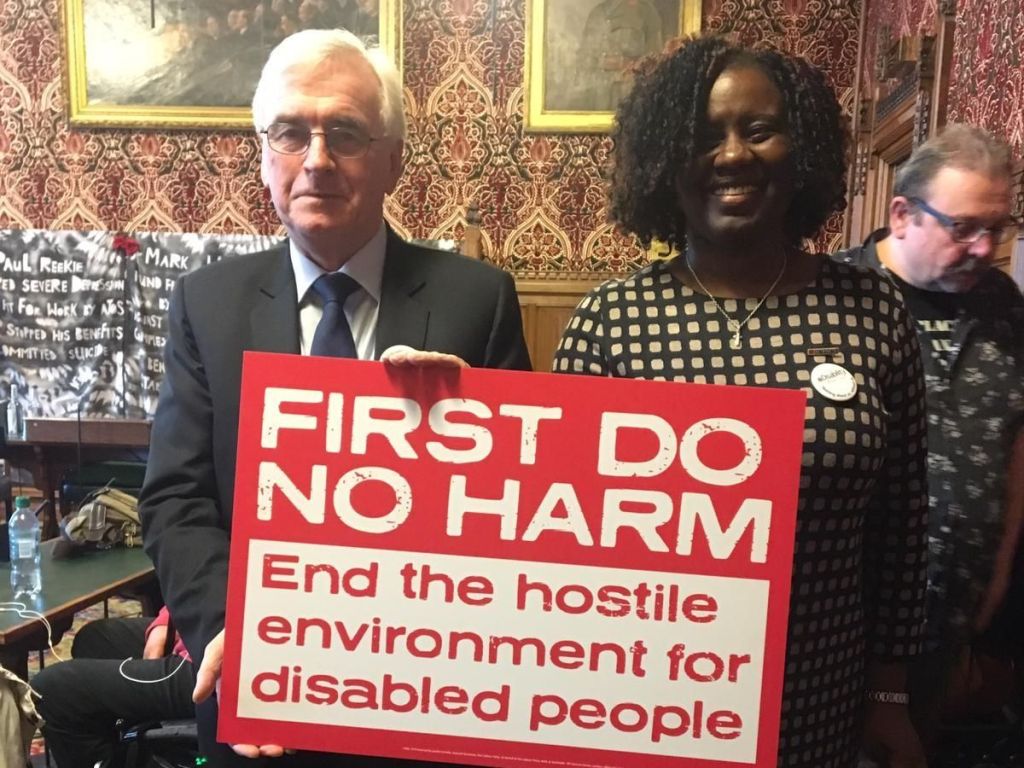
More people, like you, are reading and supporting independent, investigative and in particular, public interest journalism, than ever before.
I don’t make any money from my research and writing, and want to ensure my work remains accessible to all.
I have engaged with the most critical issues of our time – from the often devastating impact of almost a decade of Conservative policies and growing, widespread inequality to the influence of big tech on our lives. At a time when factual information is a necessity, I believe that each of us, around the world, deserves access to accurate reporting with integrity and the norms of democracy at its heart.
My work is absolutely free from commercial and political interference and not influenced one iota by billionaire media barons. I have worked hard to give a voice to those less heard, I have explored where others turn away, and always rigorously challenge those in power, holding them to account.
I hope you will consider supporting me today, or whenever you can. As independent writers, we will all need your support to keep delivering quality research and journalism that’s open and independent.
Every reader’s contribution, however big or small, is so valuable and helps keep me going. Thanks.







